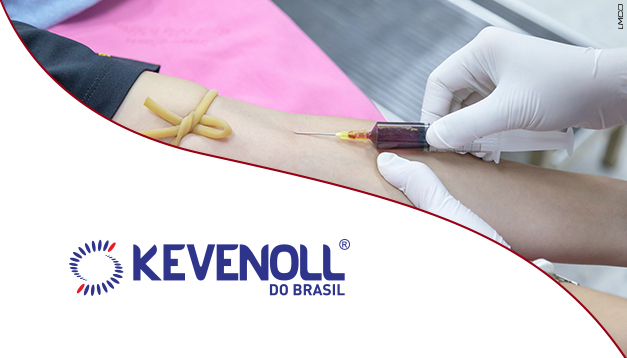Blood Donor Day is celebrated worldwide on June 14th. The date aims to thank donors and volunteers for donating a little of themselves to save other lives, as well as making the population aware of the importance of blood donation so that everyone has access to this vital item safely.
According to data from the Brazilian Ministry of Health, 1.6% of the population is a sague donor, which is a positive fact, since the World Health Organization (WHO) recommends that at least 1% of the population be a donor. Another important factor to emphasize is that 66% of blood donors in Brazil are volunteers, that is, they are spontaneous donations that are independent of incentive campaigns and that have no interest in donation (when the donation is made only because of the need of a friend, relative or acquaintance). Despite being a high percentage, this number is not yet to be celebrated, since some other Latin American countries, voluntary donation reaches almost 100%.
What are the requirements for donating blood in Brazil?
- Be between 16 and 69 years old – For minors under 18 years old it is necessary the consent of those responsible and, between 60 and 69 years, the person can only donate if he has already done so before the age of 60.
- Weigh at least 50kg – To donate you must have the weight equal to or above 50 kg and be in good health. The applicant must be rested, not have ingested alcoholic beverages in the 12 hours prior to the donation and not fasting.
- Present id – In all blood centers in the country it is required to bring photo ID to make the blood donation.
After collection, the sague is separated into different components (such as red blood cells, platelets, plasma and others), and may benefit different patients. Before release for use, blood is also tested for various diseases, ensuring that there is no contamination of the patient with the given blood. These tests also benefit the donor, as it keeps him abreast of how his own health is doing.
How are the donations with the pandemic?
With the pandemic of the new coronavirus, which caused COVID-19, all Brazilian blood centers recorded some fall in donations. Many people worry about security at the time of donating, and even moving us from their homes to donation sites. Some people also believe that it is not possible to make blood donation in this period.
However, blood donation is as necessary at this time as it was before the pandemic. Patients with some types of cancer, for example, require constant transfusions, and there are no natural or synthetic substitutes for blood, which makes donations the only option.
Also according to the Ministry of Health, in relation to COVID-19 are only considered unfit for donation for a period of 30 days, people who present respiratory symptoms and fever or who have had contact with suspected or confirmed cases of coronavirus.
In addition, hemocenters are taking additional prevention measures, such as providing hand washing conditions, using antiseptics, restricting the number of people attended at a time to avoid agglomerations, online marking, hygiene care for areas, instruments and surfaces, and the mandatory use of procedure gloves and masks – indispensable items to avoid cross-contamination.
Sources: Ministry of Health ; PebMed Portal ; PAHO Brazil ; UFMG Medicine



